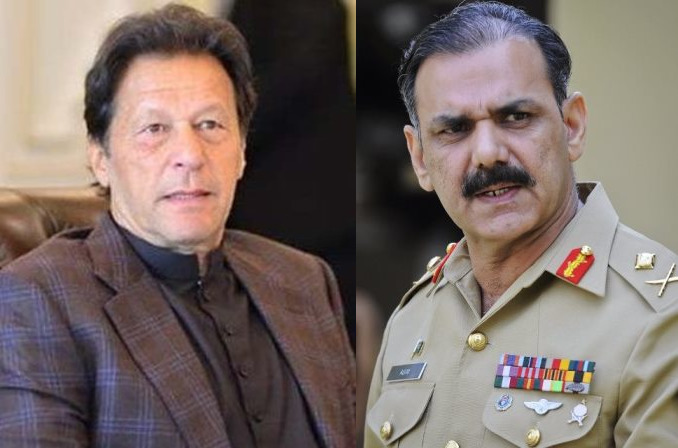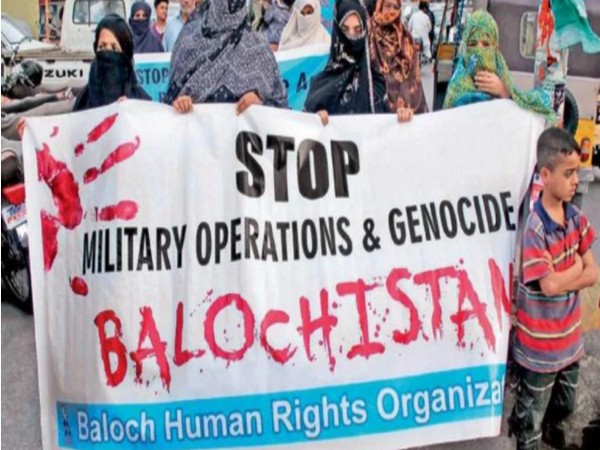The already bad reputation caused by corruption in Pakistan took a turn for the worse with the publication of an investigative report by Ahmed Noorani. The report revealed that Lt. Gen (Retd) Asim Saleem Bajwa’s family was in possession of assets worth millions in Pakistan and abroad.
Asim Bajwa is the chairman of the China-Pakistan Economic Corridor (CPEC) as well as the special assistant for information to Prime Minister Imran Khan, a portfolio that carries the protocol of a federal minister.
The report claims that Lt. Gen (r) Bajwa’s brothers, wife and two sons own a business empire, which has set up 99 companies in four countries including a pizza franchise with 133 restaurants worth an estimated USD 39.9 million. The revelation is disastrous for Imran Khan since he is desperately trying to garner international support among foreign investors and encouraging them to bring their capital to Pakistan.
But Pakistan is a state that is dying by a thousand cuts and the most recent cut, the revelations regarding Lt. Gen (r) Asim Bajwa’s assets in foreign lands, seems to have landed right on the jugular vein of Pakistan’s campaign to attract foreign investment. If the top ranking ex-military general turned bureaucrats do not trust their home economy to generate satisfactory profits, then why would one expect a foreigner to do so.
ALSO READ: Pakistan In A Tight Spot Over Dawood
That corruption is rampant in Pakistan is no more a hidden fact. During Gen Zia Ul Haq’s martial law (1977- 1988), it was common knowledge that one could get their sentence reduced by one year by bribing the military judge with one lakh rupees. The (bribe) monies were paid after the sentence was awarded and during the appeal process. The civil police who would normally escort the prisoner collected money before passing it on to the military judge.
Lashes were bought off the sentence for Rs 15,000 each. Hence there was frenzy among military courts to award long sentences and 10 to 15 lashes to each political activist that was apprehended under the martial law regulations.Today, corruption is rampant in Pakistan Army. A soldier bribes the subedar if he needs to visit his family in the village. From universities to science research labs, to electricity power companies to museums and parks, there is hardly any civil institution that is not headed by an ex-military officer.
It was during the Afghan war (1979-1989) that Pakistan military generals developed a fondness for sleazy money. Foreign aid arriving through western governments and consortiums plus the side business of cultivating and selling heroin brought a qualitative change in the manner Pakistan army business operated. Not only that it developed itself into a business conglomerate but also turned itself into a drug cartel that would supply heroin to the rest of the world.
Although the Pakistan Army’s involvement in the business is as old as the country itself, however, it was during the 1980s that its business empire expanded at a breathtaking rate reaching its zenith during General Musharraf’s tenure (1998-2008). In her book Military INC, Ayesha Saddiqa estimated the military business to be worth more than 10 billion euros in 2007, which was roughly four times the total of direct foreign investment in the same year. She claimed that 100 top military generals had a collective wealth of 3.5 billion euros.
Pakistan Army, Air Force and Navy each own the three largest conglomerates Fauji Foundation, Shaheen and Bahria Foundations. The Army Welfare Trust (established in 1971) runs the country’s largest lenders, the Askari Bank. The military National Logistic Cell (NLC) is Pakistan’s largest shipper and freight transporter. It was reported that on retirement a Maj. General can get 240 acres of prime farmland worth more than half a million pounds as well as an urban real estate plot of land worth 700,000 euros.
The rise of Pakistan Army as a usurper of the market economy has brought her into direct conflict with the local civilian investor and industrialist. It is in this background that former Prime Minister Nawaz Sharif and military generals came to loggerhead on the issue of allocation of billions worth of contracts of the CPEC. The military would not allow the Nawaz Sharif or the parliament to be the sole in charge of this multi-billion-dollar project.
ALSO READ: Chine Sidelines Pak Govt Over CPEC
Hence, they removed him through a controversial general election and brought in a political novice Imran Khan into power. Lt. Gen. (r) Bajwa was made Chairman of CPEC. But the military does not trust Imran Khan either and, therefore, a few months ago they forced him to sack Firdous Ashiq Awan, the special assistant to the Prime minister for information, and replaced her with the same guy (Asim Saleem Bajwa) who is the chairman of the CPEC.
Pakistan’s military has totally lost its credibility in the eyes of the common man and woman in the country. People despise the army and consider the plunder and perks awarded to the army as directly responsible for their sub-standard living conditions and general poverty in the country. The stubbornness, with which the Pakistan Army is stealing the natural resources of the provinces has brought them into direct-armed conflict with Baloch and Sindhi nationalists. Their demand for more autonomy has now converted into a demand for total independence from the federation.
Lack of a profitable small industrial base has led the Pakistan Army deeper into corruption and kickbacks. The recent revelations regarding Lt. Gen. (r) Bajwa do not come as a surprise but as a confirmation of the suspicion, the general public has held for decades about its army that Pakistan military no longer considers Pakistan a productive economy. The only way to generate profit for them is to strip Pakistan of all its natural resources and invest in foreign countries that can promise an uninterrupted flow of revenue.
None other than those who in the first place was supposed to protect it from the enemy is beating blow-by-blow Pakistan to the ground. The inability of a market economy has forced its men in uniform to consume whatever is left of the country’s resources. Hence, failing to become innovative entrepreneurs the Pakistan Army has become a parasite and Pakistan has turned into a state that is run by the rules of parasite capitalism.
The author is a human rights activist from Mirpur in PoK. He currently lives in exile in the UK. (ANI)

